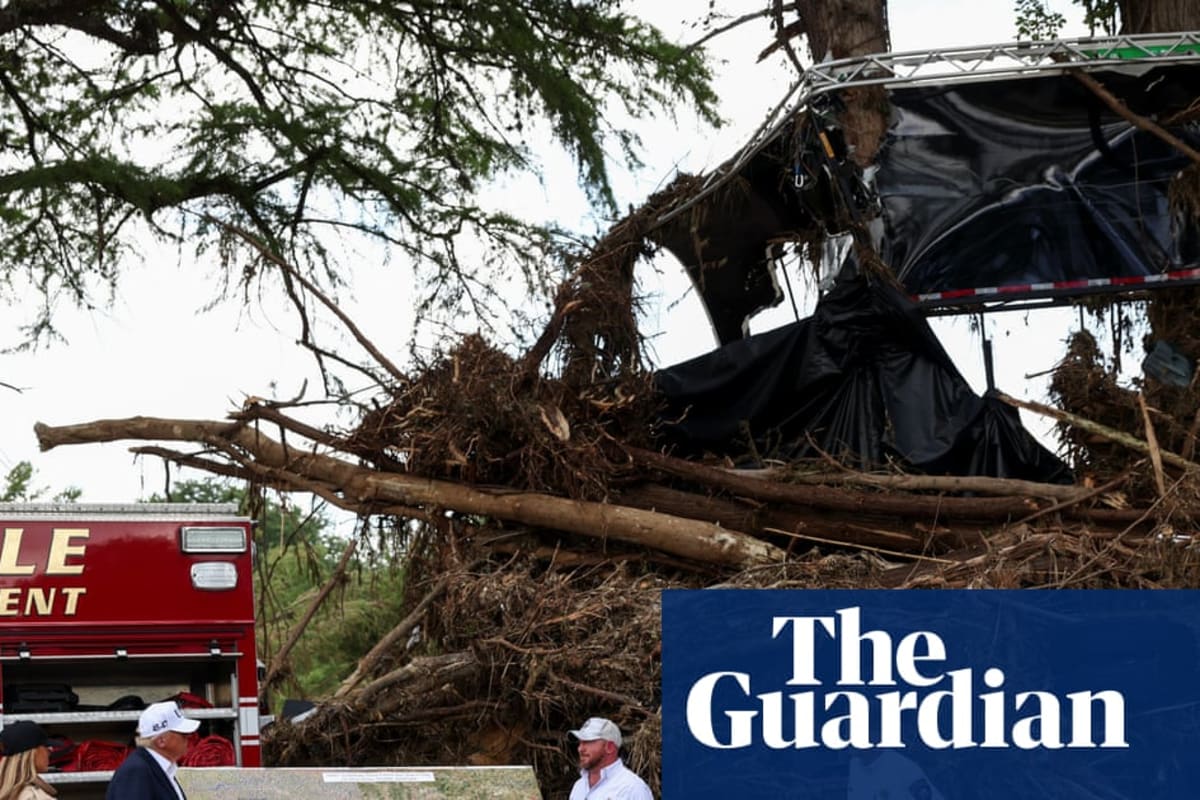Trump Climate Report Slammed by Scientists: A 'Shoddy Mess'

A group of over 85 leading US climate scientists has issued a sharp rebuke of a report on climate change produced during the Trump administration.
The scientists, in a comprehensive 434-page review made public alongside The Guardian's coverage, condemned the Department of Energy (DOE) document as a "shoddy mess," alleging it is riddled with errors, biased, and fundamentally lacking in scientific credibility The DOE report, reportedly authored by five researchers described by critics as holding "fringe" views, argued that the severity of global warming and its associated impacts has been significantly exaggerated.
This controversy highlights a persistent and deeply concerning trend: the alleged deliberate undermining of established climate science, potentially for political or economic gain The conclusions presented in the dissenting report stand in stark contrast to the overwhelming scientific consensus supported by leading institutions such as the Intergovernmental Panel on Climate Change (IPCC), the US National Academy of Sciences, and numerous other national academies of science worldwide This divergence is not simply an abstract academic debate; it carries profound real-world consequences, particularly for highly vulnerable regions like Southeast Asia The implications for Southeast Asia are particularly significant, given the region's geographic and socioeconomic vulnerabilities to climate change Southeast Asia faces heightened risks from: Sea-level rise: Coastal communities in countries including Vietnam, Thailand, the Philippines, and Indonesia are increasingly threatened by inundation, displacement of populations, and damage to vital infrastructure A downplaying of climate risks directly undermines the urgency of implementing robust adaptation strategies, such as building seawalls and relocating communities Extreme weather events: The escalating frequency and intensity of typhoons, droughts, and floods are already causing widespread devastation and significant economic losses across Southeast Asia Underestimating the projected scale of future climate impacts severely hinders preparedness and effective disaster response efforts The Philippines, for example, experiences an average of 20 typhoons annually, and these storms are projected to become more powerful Food security: Shifts in rainfall patterns, coupled with rising temperatures, pose a significant threat to agricultural productivity, thereby impacting food security for millions of people throughout the region A lack of accurate and reliable climate projections impedes the development and implementation of climate-resilient agricultural practices, such as drought-resistant crops and improved irrigation systems Water scarcity: Alterations in precipitation patterns are exacerbating existing water stress in many parts of the region, directly affecting water resources for critical sectors including agriculture, industry, and domestic use This scarcity can lead to increased competition for resources and potential social unrest Economic instability: The cumulative impact of these interconnected climate-related risks poses a substantial threat to the overall economic stability and sustained development of Southeast Asia The region's reliance on agriculture and natural resources makes it particularly vulnerable to climate shocks The report produced under the Trump administration, by allegedly minimizing these risks, not only misinforms the American public but also potentially undermines international cooperation on climate action The international community, including the nations of Southeast Asia, relies on accurate and reliable climate science to inform policy decisions, allocate resources effectively, and secure necessary funding for climate adaptation and mitigation measures The deliberate dissemination of misinformation erodes these efforts, potentially leading to delayed or insufficient action, which could have devastating long-term consequences The overwhelming consensus among the broader scientific community, as underscored by the 85 experts' counter-report, should serve as a stark warning to policymakers and the public alike The tangible impacts of climate change are already being felt across the globe, and Southeast Asia is disproportionately vulnerable to these effects Choosing to ignore or downplay the available scientific evidence only exacerbates the existing risks and jeopardizes the long-term well-being of millions of people living in the region Looking ahead, Southeast Asian nations must prioritize strengthening their own climate monitoring and research capabilities to ensure access to accurate, localized climate data Furthermore, robust international collaborations and sustained support are crucial for bolstering climate resilience and promoting the adoption of effective adaptation and mitigation strategies This requires not only comprehensive scientific understanding but also strong political will and unwavering international cooperation – a challenge compounded by the kind of deliberate misinformation that is allegedly presented in reports such as the one under scrutiny In conclusion, the controversy surrounding the Trump administration's climate report underscores the critical importance of accurate scientific information in shaping and informing climate policy The implications for Southeast Asia are profound, highlighting the urgent need for strengthened regional and international cooperation to address the multifaceted and escalating threat of climate change The future prosperity and stability of the region depend on decisive and evidence-based action
